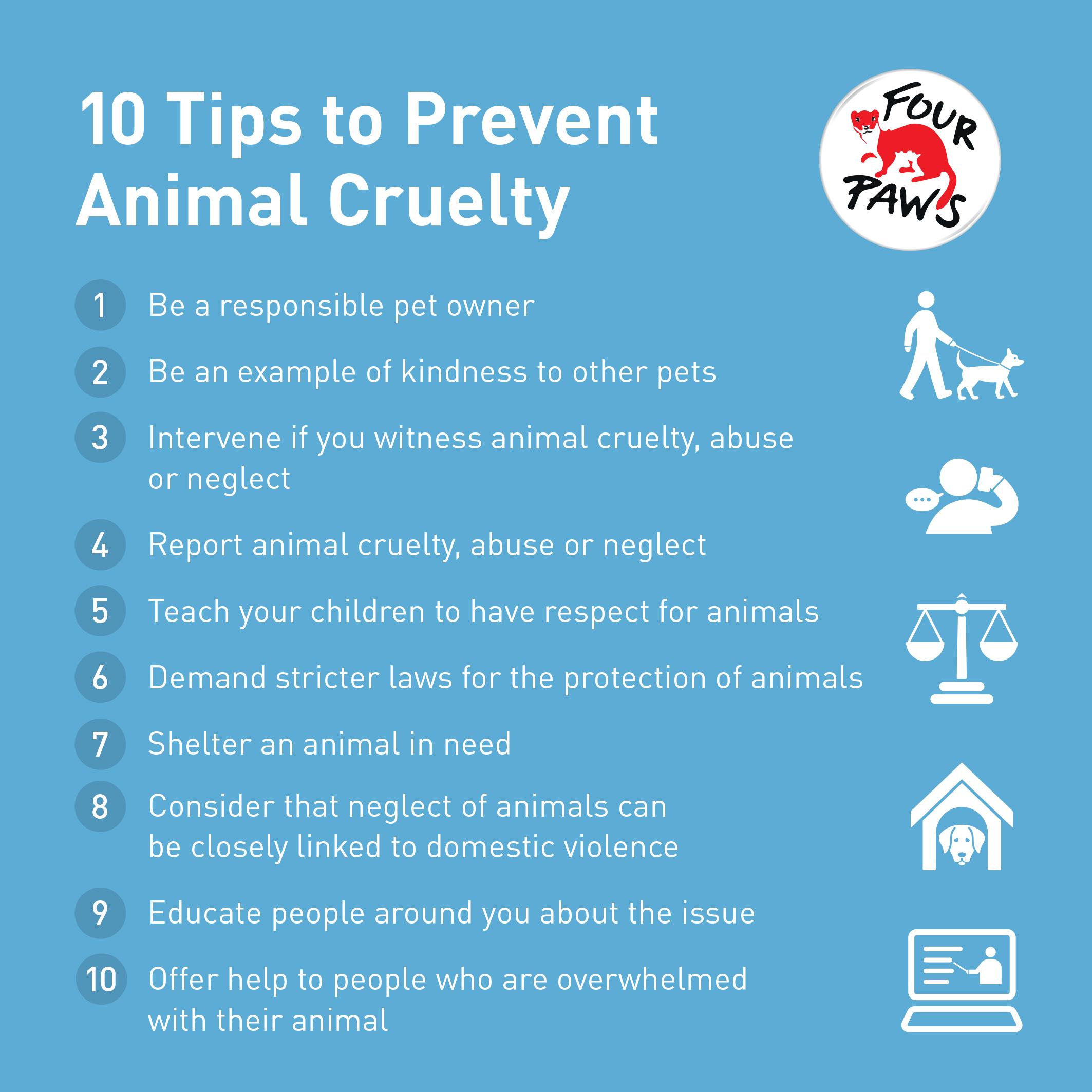Animal cruelty is an abhorrent crime that occurs in various forms, ranging from neglect and abandonment to more overt manifestations of violence. While the situation may appear dire, the power to incite change rests within our collective hands. Have you ever pondered the question, “What if I could make a tangible difference in the lives of animals who suffer in silence?” This rhetorical inquiry introduces the challenge of transforming one’s compassion for animals into proactive involvement. Herein lies an exploration of multifaceted strategies to bolster animal cruelty prevention movements.
To embark on this noble endeavor, it is essential to understand the myriad forms animal cruelty can take. The spectrum of abuse is broad; include domestic violence against pets, abuses within the agricultural sector, and exploitation in entertainment industries. Ignorance often perpetuates these heinous practices. By educating oneself and others about these issues, individuals can foster a more compassionate society. Nonetheless, knowledge is only the first step—what tangible actions can one take to translate this understanding into real-world change?
Volunteering is one of the most impactful ways to contribute to animal welfare. Local shelters and animal organizations frequently require compassionate volunteers to assist with a variety of tasks, from feeding and grooming animals to administrative work or event planning. By dedicating time to these organizations, individuals not only help care for animals but also become advocates for those unable to voice their suffering.
Beyond volunteering, financial contributions, no matter how modest, can significantly bolster the efforts of animal welfare organizations. Consider the power of pooling resources! A small donation from many individuals adds up to substantial funds that can support crucial initiatives such as rescue operations, rehabilitation programs, and educational outreach. Be mindful of the organizations you select to support—conduct thorough research to ensure your contributions are used ethically and effectively.
Advocacy takes on many forms, and being an informed citizen is paramount in effecting change. Engaging with local and state government representatives about animal cruelty laws can lead to enhancements in protections for animals. Write letters, make phone calls, or even schedule visits to express your concerns regarding current legislation. Is there a specific animal welfare law that needs strengthening? Consider galvanizing your community to rally around a cause—collaboration can create an astounding ripple effect.
Social media has become an indispensable tool in the fight against animal cruelty. Leveraging these platforms allows for the dissemination of critical information, the promotion of compassionate lifestyles, and the formation of community among like-minded individuals. Create awareness campaigns, share informative articles, and post about local shelters seeking adopters or volunteers. The reach of social media can amplify your voice and inspire others to join the cause.
However, advocacy should not be confined to the digital realm. Organizing local events or workshops can foster community engagement and spread awareness beyond the confines of the screen. Host educational sessions in schools, community centers, or even your home. Topics could range from the importance of spaying and neutering pets to the significance of adopting rather than shopping for animals. No matter the venue, discussions about animal welfare cultivate a culture of compassion.
Additionally, consider your personal lifestyle choices. The dietary choices one makes, especially regarding animal products, can significantly impact animal welfare. Many people are unaware of the cruelty that occurs within the industrial livestock system. By exploring plant-based diets or adopting humane options, consumers can vote with their wallets. Sustaining companies that prioritize ethical treatment of animals not only supports progressive businesses but also sends a powerful message to the market.
Another compelling method of advocacy rests in the art of storytelling. Utilizing personal narratives or showcasing the unwavering spirits of animals through creative writing, filmmaking, or other artistic avenues compels an emotional response. Engaging storytelling can capture hearts and compel individuals to reevaluate their relationship with animals. A beautifully crafted message can resonate deeply, converting passive observers into fervent advocates.
Moreover, one cannot underestimate the power of partnerships. Collaborate with local businesses to create promotions that benefit animal welfare organizations. For instance, a portion of the sales from pet boutiques could be donated to animal shelters. Such partnerships not only benefit the organizations involved but also nurture a community spirit and raise awareness about animal cruelty.
In the quest to combat cruelty, involve youth; empower the next generation by teaching them about compassion towards animals. Initiatives in educational institutions can create fervent advocates for animals from a young age. Encourage students to take part in volunteer programs or animal rights clubs to establish early connections with the cause. Engaging young people fosters a culture of respect for all living beings, which is essential for long-term change.
Ultimately, the question remains: How will you contribute to preventing cruelty to animals in your community? Each individual holds the power to influence the lives of countless creatures facing unimaginable hardships. Whether through volunteering, educating, advocating, or simply choosing compassion, every action counts. The challenge is clear. Embrace the role of an advocate and explore the countless avenues through which you can make a difference. Collectively, we wield the potential to usher in a more benevolent world, one where every animal can live free from cruelty and fear.








